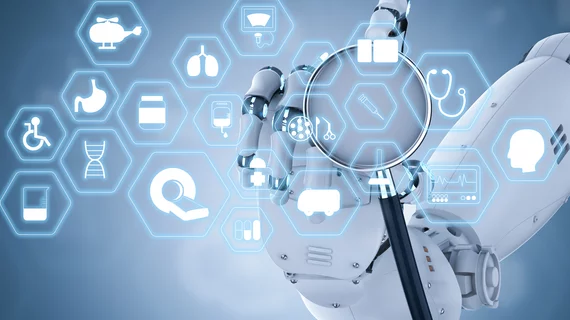New doctor-led group plans to credential medical professionals in AI
Artificial intelligence is beginning to expand into hospitals and health systems, and a new certifying board will help medical professions better understand what they are dealing with.
The American Board of Artificial Intelligence in Medicine will administer board certification to individuals who pass a comprehensive exam, showing they have a strong understanding of AI, machine learning and deep learning. ABAIM, as it’s known, recently announced its incorporation as a not-for-profit entity in a March 9 statement.
Two doctors are leading and co-chairing the agency: Orest Boyko, MD, PhD, a psychology research professor at the University of Southern California, and Anthony Chang, MD, of the Sharon Disney Lund Medical Intelligence and Innovation Institute at Children’s Hospital of Orange County in California. Imaging vendor Guerbet has also chipped in a grant to help fund the board.
“The birth of the ABAIM is a tremendously exciting and major milestone in bringing AI education and certification to all healthcare providers,” Chang said in a statement. “Our vision of creating synergy between healthcare and AI-related technologies will bring about a new paradigm of intelligence-based medicine and transform healthcare for everyone.”
Chang also noted that the board will roll out its “modular” curriculum to a variety of other healthcare professionals, including radiologists, technicians, executives, patients and data scientists, among others.
Currently, the agency said it is creating its credentialing exams, noting those who pass them will also qualify to analyze the benefits and shortcomings of AI, DL and ML in real-world circumstances.

